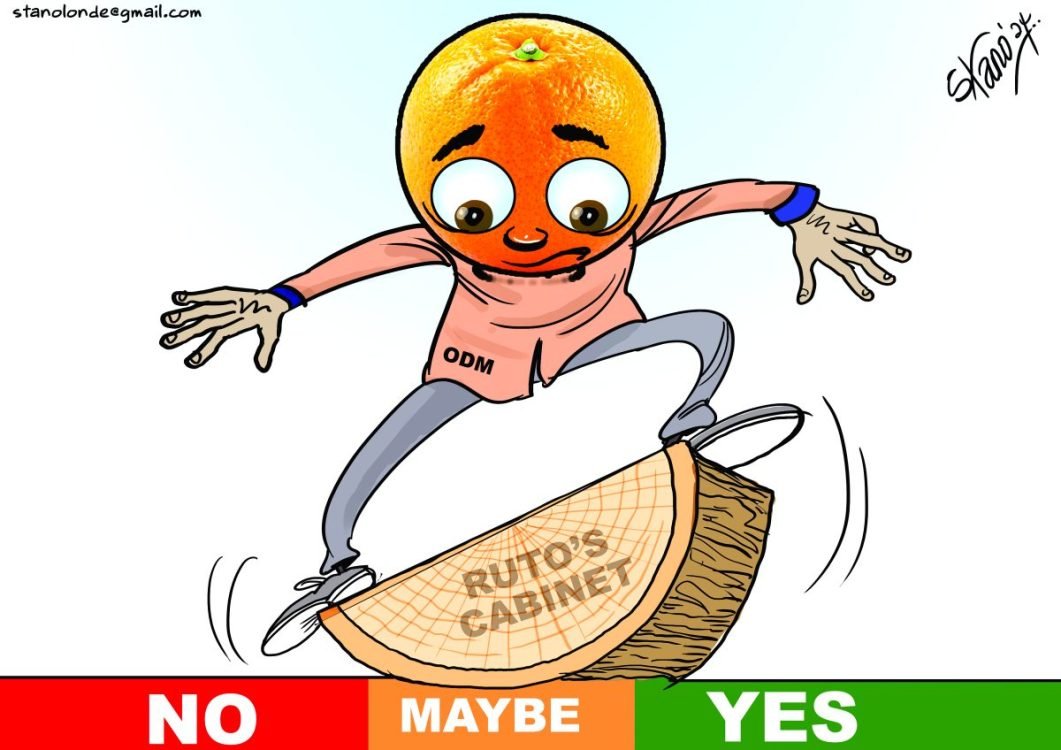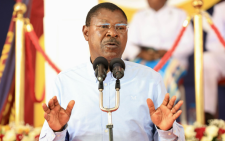As we pay for past choices, look ahead to 2027

The economic impact of Gen Z-led protests is significant, with Kenya losing at least a workday a week for over a month now. This is equivalent to more than a week of holiday in a month, a substantial blow to the economy.
This is similar to what happened last year when anti-government protests were led by Azimio principal Raila Odinga, only that the days were fewer. This year, Odinga has largely stayed on the sidelines, only issuing occasional statements.
The government’s response to the protests has been a key factor. Last year’s demonstrations, though less expansive, were met with greater violence. The creation of the National Dialogue Committee tempered this violence, but the government quietly shelved the panel’s findings and resumed business as usual.
It appeared that the government and those characterised by the Deputy President as shareholders in government did not identify with either the issues raised or the structure of its leadership.
Odinga is a known quantity, easier to isolate and lampoon. Some have a fixed opinion about him and inevitably interpret his engagement on any issue from the same script, often without exploring the merits of what he may be standing for.
But it has been different this year, even if the issues that the protesters were raising were effectively the same: the cost of living, high taxation and governance, among others. Gen Z prided itself on being leaderless, thus giving the establishment a problematic time in lampooning them.
It is easier to demonise something with visual representation. While the impact of the Gen Z-led protests may be more significant on the economy, the usual crowd of Nairobi businessmen this time is yet to show up to complain that their businesses are being hurt.
The government has been much more ready to respond to Gen Z, unlike the Odinga-led protests of last year. While last year’s finance bill passed and became law, this year’s version has been withdrawn, and the Cabinet was dismissed.
These are gains that have emerged from the Gen Z-led movement. It will take a lot of work for the government to get back to business as usual. For the past two months, the appointed leaders’ usual display of raw power, forcing their way into traffic and public places, has dissipated. It is too early to state whether the change will be permanent, but at least some fear has been driven into government and the way it works.
Nearly two months of disruptions have damaged the economy. Kenya’s image may have suffered internationally. Investors may not be immediately enthused to bring their money and expertise into a country without guaranteed stability. The protesters’ threat to occupy JKIA was unsettling indeed.
The hashtag #RutoMustGo has been trending for a while now. But as most protesters, many of them in their youthful years, would tell you, they have no idea what to do if their wish were to be granted. The Deputy President, he of the shareholder fame, is nobody’s darling, and some people are probably more terrified if he, not his boss, were to be in charge.
This must lead to a different conversation now. For the past 22 months, the country has borne the brunt of bad leadership. As the American diplomat reminded us years ago, choices have consequences, and Kenyans are living and experiencing their choices.
For an observer from outer space, the National Assembly looks like one large group of comedians – they cheer when they pass the bill and cheer when it is rejected. It appears that Parliament does not take its work seriously.
It may be time to take stock of all that ails the country and, using the platforms they have so perfected, have Gen Z present these as the irreducible minimums as Kenya goes to the next elections. They could then vote in a government that pledges to implement the irreducible minimums. Three years may appear to be a lifetime, but it will soon be over. For now, efforts should be focussed on stabilising the country.
— The writer is the Dean of Daystar University’s School of Communication












